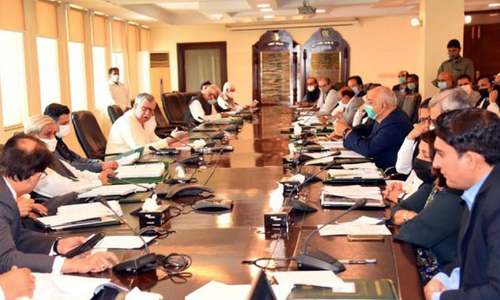ISLAMABAD: Prime Minister Imran Khan on Monday announced a 40 per cent targeted subsidy for the poor on purchase of essential food items, saying the special step would provide relief to low-income groups against inflation.
Addressing the launching ceremony of an ambitious Rs1.4 trillion Kamyab Pakistan Programme (KKP), he said the underprivileged segment would get targeted subsidies on wheat, flour, sugar and ghee (cooking oil).
The prime minister lamented that all previous governments had made such systems in the country which only benefited the elite, and not the poor and the middle class. He said his government was also facing resistance in his efforts to change pro-elite system.
Mr Khan said Pakistan had made a “huge mistake” by not following the ideas of the country’s founders to make it a welfare state. “All the systems in Pakistan have been made for the elite,” he added.
Ambitious Rs1.4tr Kamyab Pakistan Programme launched
“We made a huge mistake 74 years ago. We believed that we would make Pakistan a welfare state after there was prosperity and wealth in the country. The thought — that there needs to be surplus first and then we [government] will invest in the poor — I believe these were fundamentally wrong decisions,” he added.
The premier said the government had passed on “minimum impact” of the rising international prices to people. He said 75 per cent of palm oil in the country was being imported and thus the common man was facing the impact of “imported inflation”. At present, he said, the government was trying its best to reduce the burden of inflation on people.
The prime minister claimed that compared with the global inflation of 100pc, the prices in Pakistan witnessed a 22pc surge only. He said the global prices of wheat and sugar grew 37pc and 40pc, respectively, compared to 12pc and 21pc in Pakistan.
PM Khan claimed that the price of petrol in Pakistan was at its lowest among all countries, except oil-producing states, and neighbouring India was selling petrol at comparative double rates. He said the government had cut levy and sales tax on petrol and, as a result, bore a loss of Rs400 billion in order to provide relief to consumers.
The prime minister said the KPM was aimed at bringing improvement in the lives of common people. He praised Finance Minister Shaukat Tarin for ensuring microfinance facility for low-income groups, saying it reflected the government’s firm intention to uplift the underprivileged.
Mr Khan regretted that the country’s system for the past 72 years had catered only a handful of the elite, saying “an island of rich” was benefiting from the financial, education and justice systems.
He said his government was committed to following the principles of the history’s first Islamic State of Madina, which ensured welfare and justice for its citizens. He said Pakistan had “never implemented” the welfare system the founding fathers had thought of and instead an “elitist” system was formed.
About the education system, the prime minister said it a “huge misfortune” that a small segment of the country was enrolled in English-medium schools so they got jobs while the rest of the public was not able to progress.
“A different standard of education for one class [of society] and a different one for another — education apartheid. And then there are madressahs. Nobody tried to synthesise it. [This is] one country, one nation, at least it should have a core syllabus. Our kind of elite was benefiting from it; our children were getting good jobs, so we had no incentive to change it,” he regretted.
On the occasion, Finance Minister Tarin said the government was intending to put in place an inclusive sustainable growth setup to benefit all segments of society. He said the unique formula of loan disbursement among 3.7 million households through microfinance banks and non-governmental organisations would facilitate the people in their small businesses.
The KPP, he said, would be transitioned to expand while simultaneously reducing the Ehsaas project, with an objective to make people self-sufficient. Mr Tarin said the ‘bottom-up approach’ would particularly benefit the low-income groups.
PM’s special assistant Usman Dar and Naya Pakistan Housing Authority chairman retired Lt Gen Anwar Haider Ali highlighted the salient features of the programmes with respect to their domains.
Farmers will get interest-free loans under the Kamyab Kissan programme. Financing of up to Rs500,000 will be made for businesses under the Kamyab Karobar programme. Financing on easy installments will be extended for construction of houses under the Sasta Ghar scheme, besides linking successful skilled-based scholarship schemes and Sehat Insaf Card with the KPP.
Published in Dawn, October 5th, 2021













































